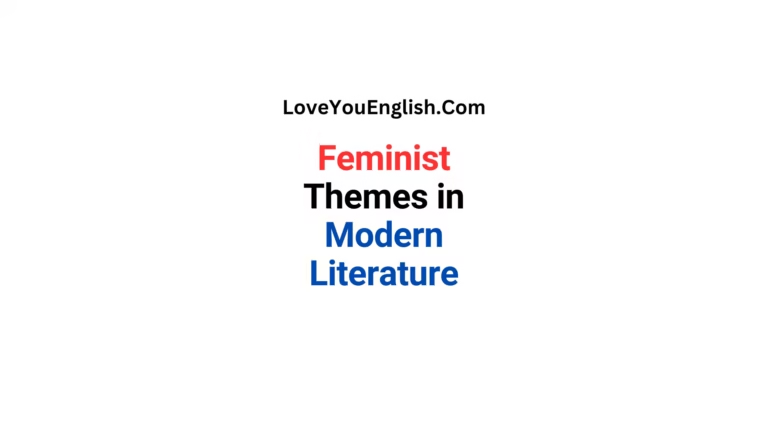The Impact of English Writers on Global Literature
Imagine a world without Shakespeare’s sharp wit, Dickens’s haunting depth, or J.K. Rowling’s magical storytelling. English writers have not only shaped literature but also influenced cultures, languages, and ideologies across the world. Their words have transcended time, borders, and generations, leaving a lasting impact on global literature.
The Evolution of English Literature
English literature has a rich history that spans centuries, from medieval tales to modern novels. Writers from different periods have contributed to shaping how stories are told and how ideas are shared. Their influence extends beyond entertainment, impacting education, philosophy, politics, and even the way we communicate today.
Some of the earliest English literary works, such as Geoffrey Chaucer’s The Canterbury Tales, helped establish English as a literary language at a time when Latin and French dominated. Over time, English literature evolved, embracing new styles, themes, and storytelling techniques that have influenced writers and readers worldwide.
The Golden Age of English Literature
The 16th and 17th centuries are often considered the golden age of English literature, thanks to the works of William Shakespeare, Christopher Marlowe, and John Milton.
William Shakespeare: The Universal Storyteller
Shakespeare’s influence on literature is unparalleled. His plays and sonnets explore themes like love, power, jealousy, and ambition—emotions that resonate with people across cultures and time periods. His works have been translated into over 100 languages, proving that his storytelling knows no borders.
Many phrases and words we use today, such as “break the ice” and “wild-goose chase,” originated from Shakespeare’s plays. His impact extends beyond literature; his characters, plots, and themes continue to inspire films, music, and art worldwide.
John Milton and the Power of Epic Poetry
Milton’s Paradise Lost is one of the greatest epic poems ever written. It not only shaped English poetry but also influenced the works of writers around the world, from the Romantic poets of the 19th century to modern novelists exploring themes of rebellion and redemption. His writing demonstrated the power of language to shape moral and philosophical discussions.
The 19th Century: The Rise of the Novel
The 19th century saw the rise of the novel as a dominant literary form, with writers like Charles Dickens, Jane Austen, and the Brontë sisters leading the way.
Charles Dickens: The Voice of Social Change
Dickens’ novels, such as Oliver Twist and A Tale of Two Cities, did more than entertain—they exposed the harsh realities of poverty, child labor, and social injustice. His storytelling influenced not just English literature but also social reforms in England and beyond.
His vivid characters—Scrooge, Oliver Twist, and Pip—have become symbols of human struggle and redemption, inspiring countless adaptations in literature and film across the world.
Jane Austen: The Pioneer of Modern Romance
Austen’s novels, including Pride and Prejudice and Sense and Sensibility, revolutionized romantic fiction. Her sharp social commentary and deep understanding of human relationships have inspired countless romantic novels and films. Writers from different cultures continue to draw inspiration from her wit and character development.
The Brontë Sisters: Challenging Conventions
Charlotte, Emily, and Anne Brontë brought a new depth to English literature by exploring themes of passion, independence, and mental struggles. Wuthering Heights and Jane Eyre remain powerful works that have influenced feminist literature and gothic storytelling worldwide.
The 20th Century: Modernism and Beyond
The 20th century witnessed a literary revolution with the emergence of modernist and postmodernist writers who experimented with form, structure, and themes.
Virginia Woolf: The Stream of Consciousness Pioneer
Woolf’s works, such as Mrs. Dalloway and To the Lighthouse, introduced the stream-of-consciousness technique, a writing style that has influenced authors worldwide. Her exploration of gender roles and identity continues to inspire feminist writers and scholars.
George Orwell: Literature as Political Commentary
Orwell’s 1984 and Animal Farm are not just English novels—they are global warnings about the dangers of totalitarianism and propaganda. His influence is evident in political discourse and dystopian literature across different cultures and languages.
J.R.R. Tolkien and the Fantasy Genre
Tolkien’s The Lord of the Rings is a cornerstone of modern fantasy literature. His world-building, mythology, and linguistic creativity have inspired countless authors, including J.K. Rowling and George R.R. Martin. The fantasy genre, once considered niche, is now a dominant force in global literature and entertainment.
Agatha Christie: The Queen of Mystery
Christie’s detective novels, particularly featuring Hercule Poirot and Miss Marple, have shaped the mystery genre worldwide. Her books have sold billions of copies, making her one of the best-selling authors in history. Her influence can be seen in detective fiction across different cultures, from Japan to Scandinavia.
The 21st Century: English Literature in the Digital Age
In the modern era, English writers continue to shape global literature, reaching audiences through digital platforms, e-books, and adaptations in films and television.
J.K. Rowling: The Global Phenomenon
Rowling’s Harry Potter series is a prime example of how English literature can captivate a global audience. Her storytelling has influenced young adult fiction, inspiring a new generation of writers worldwide. Beyond books, the Harry Potter universe has impacted pop culture, film, and even theme parks.
Contemporary Writers Expanding Boundaries
Authors like Salman Rushdie, Zadie Smith, and Kazuo Ishiguro bring diverse perspectives to English literature, reflecting a globalized world. Their works challenge traditional narratives, blending cultures and themes that resonate with international audiences.
The Lasting Legacy of English Writers
English writers have shaped literature in profound ways, from storytelling techniques to social and political influence. Their works continue to be read, analyzed, and adapted across cultures. Whether through Shakespearean drama, Dickensian social critique, Orwellian political warnings, or Rowling’s magical worlds, English literature remains a powerful force in global storytelling.
As literature evolves, English writers will undoubtedly continue to inspire, challenge, and entertain audiences worldwide, proving that the power of words transcends time and borders.
More topics:
- The Influence of Greek Mythology on English Literature
- The Rise of Dystopian Literature in the 20th Century
- How English Literature Explores the Concept of Heroism
- Satire in English Literature: From Jonathan Swift to George Orwell
Resources:
- Project Gutenberg
https://www.gutenberg.org/ - JSTOR – Literature
https://www.jstor.org/ - The Poetry Foundation
https://www.poetryfoundation.org/







